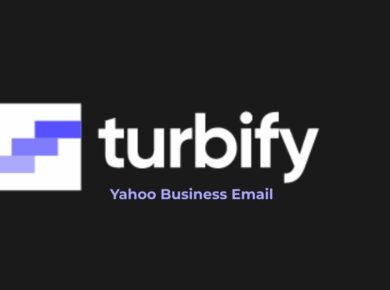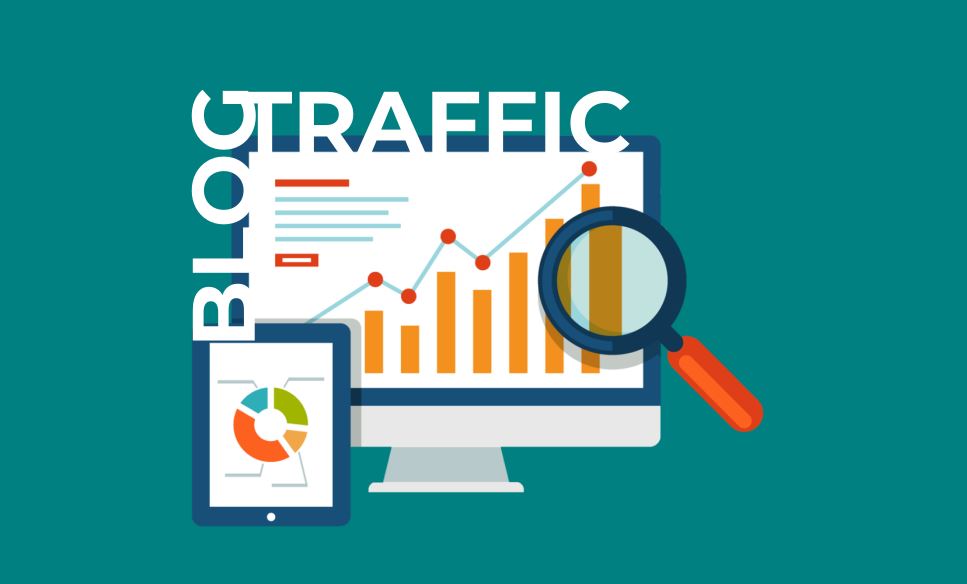SaaS (Software as a Service) providers have seen exponential growth over time, creating intense competition among them and necessitating effective marketing strategies in order to stand out and attract customers. Search engine optimization (SEO), an important aspect of SaaS marketing that drives organic traffic and produces quality leads is key if they wish to succeed and we will discuss strategies, tools and expert opinions which can assist them to optimize SEO efforts and ultimately achieve marketing success in this article.
Understanding SaaS SEO
In order to fully harness SEO’s power for your SaaS company, it’s crucial that its fundamentals are understood. SEO involves optimizing website and content so as to rank higher on search engine results pages (SERPs) when users perform keyword searches related to specific services or solutions you offer – in the context of SaaS companies this process plays a vital role in increasing brand recognition among potential customers and driving conversions.
Competition among SaaS providers can be fierce and customers typically conduct in-depth online research prior to making purchasing decisions. By employing effective SEO strategies, businesses can ensure their SaaS solution appears prominently in search results – giving them more chances to capture user attention and attract potential clients.
Keyword research is at the core of SaaS SEO. By targeting and selecting relevant keywords, your content can meet searchers’ intent more precisely and better engage your target audience. Google Keyword Planner, SEMrush and Ahrefs all can assist with finding these relevant words with sufficient search volume but manageable competition levels.
Building an Effective SaaS SEO Framework
Developing a comprehensive SEO framework is crucial for maximizing the impact of your SaaS marketing efforts. Let’s explore the key steps involved:
Technical SEO
Ensure that your website is technically optimized for search engines. This includes optimizing site speed, improving mobile responsiveness, implementing structured data markup, and creating XML sitemaps.
On-Page Optimization
Optimize your website’s pages to align with your target keywords. Craft compelling meta titles and descriptions, optimize header tags, and incorporate relevant keywords naturally within your content. Additionally, focus on creating valuable, informative, and engaging content that resonates with your target audience.
User Experience
User experience is a critical factor in SEO. Ensure that your website is easy to navigate, visually appealing, and loads quickly. Intuitive user experience not only pleases visitors but also keeps them engaged and encourages them to explore further.
Link Building
Acquire high-quality backlinks from reputable websites in the SaaS industry. Guest blogging, creating valuable content that others want to link to, and building relationships with influencers can help you earn authoritative backlinks, signaling to search engines that your website is trustworthy and deserving of higher rankings.
Tip:
“Content is king, but optimization is the crown. Craft high-quality, informative content that resonates with your audience and optimize it with targeted keywords to increase your visibility in search results.”
Partnering with a SaaS SEO Consultant or Agency
Collaborating with a SaaS SEO Agency or consultant can provide valuable expertise and guidance to optimize your SEO efforts.
Here’s why partnering with a consultant or agency can be beneficial:
- Industry Expertise: SaaS SEO agencies or consultants specialize in the SaaS industry and have a deep understanding of its unique challenges and requirements. They can tailor their strategies to suit your specific needs, ensuring maximum impact.
- Strategy Development: A SaaS SEO consultant will work closely with you to develop a customized SEO strategy aligned with your business goals. They’ll conduct comprehensive audits, competitor analysis, and keyword research to identify untapped opportunities and develop an effective plan of action.
- Implementation and Execution: Consultants can handle the execution of your SEO strategy, including technical optimizations, on-page optimizations, and content creation. They can also manage your link-building efforts and monitor your website’s performance.
- Ongoing Optimization: SEO is an ongoing process, and a SaaS SEO consultant or agency can continuously optimize your website and monitor results. They’ll analyze data, make data-driven decisions, and adapt strategies to ensure your SaaS marketing remains effective and competitive.
Leveraging SEO Tools for SaaS Marketing Success

Several SEO tools can streamline your SaaS marketing efforts and provide valuable insights. Here are some essential tools to consider:
- Keyword Research: Tools like Google Keyword Planner, SEMrush, and Ahrefs can help identify relevant keywords, analyze search volume, and assess keyword difficulty, enabling you to target the most impactful keywords for your SaaS business.
- Competitor Analysis: Tools such as SEMrush and SpyFu allow you to gain insights into your competitors’ SEO strategies. You can analyze their organic keyword rankings, backlink profiles, and content strategies to identify areas where you can outperform them.
- Analytics and Reporting: Google Analytics and Google Search Console provide invaluable data on your website’s performance. These tools offer insights into user behavior, traffic sources, keyword rankings, and more, helping you make data-driven decisions to optimize your SaaS marketing efforts continually.
- SEO Management Platforms: Platforms like Moz and SEMrush offer comprehensive SEO management features. They provide site audits, keyword tracking, backlink analysis, and other functionalities to streamline your SaaS SEO efforts and track your progress effectively.
See Also – How to Rank Higher on Google: 5 Effective Tips
The Future of SaaS SEO
As the SaaS industry continues to evolve, so does SEO. Here are some emerging trends and insights to keep in mind for the future:
- Voice Search Optimization: With the rise of voice assistants like Siri and Alexa, optimizing your SaaS website for voice search queries is becoming increasingly important. Focus on long-tail keywords and conversational language to align with the way people speak their search queries.
- Mobile Optimization: Mobile devices play a significant role in SaaS marketing, and optimizing your website for mobile users is crucial. Ensure your website is mobile-friendly, loads quickly, and provides an excellent user experience across different devices.
- AI and Machine Learning: AI-powered technologies are transforming SEO. Search engines are becoming smarter at understanding user intent and delivering relevant results. Stay updated with AI advancements and leverage tools that utilize machine learning algorithms to gain a competitive edge.
FAQ SaaS Marketing
What does SaaS marketing mean?
SaaS marketing (short for Software as a Service Marketing) is a targeted form of promotion designed to drive subscription-based software products forward. It involves developing strategies and activities specifically targeted towards increasing product awareness, positioning offerings efficiently and increasing sales for these subscription-based software services.
How to start SaaS marketing?
Setting out on your SaaS marketing journey involves understanding your ideal customer base, assessing competitors and creating an appealing unique selling proposition. Effective SaaS marketing requires adopting strategies like content marketing, free trials and SEO tactics in order to establish an online presence – crafting engaging content optimized for search engines are integral parts of initiating effective SaaS campaigns.
How do I get my first 1000 SaaS customers?
Acquisition of your first 1000 SaaS customers requires taking an intentional, strategic approach. Begin by defining who your target audience is and tailoring marketing efforts accordingly; make use of content marketing, create informative blog posts, engage your followers on social media platforms such as Twitter or LinkedIn; offer superior customer service, encourage referrals to build a loyal clientele base – these all contribute towards building long-term business success!
How much does SaaS marketing cost?
Cost of SaaS marketing depends upon your strategy and goals, with costs typically allocated as a significant portion of revenue towards sales and marketing activities, from small operations aiming for growth potential up to venture-backed startups with multiple millions invested. Making wise choices when investing in campaigns that resonate with target audiences will maximize budget allocation.
How do I monetize my SaaS products?
Monetizing SaaS products requires careful thought. Consider including payment processing in subscription plans or as an add-on service; or charge extra for advanced payment processor features that could monetize transactions made via your platform or charge extra fees to access advanced payment processor features. Create your monetization strategy based on customer needs so as to provide them with an enjoyable and beneficial experience.
How do I start a SaaS from scratch?
Launching a SaaS business from scratch requires taking an organized and disciplined approach.
- Start with market analysis to validate your concept and identify your target audience
- Discuss product requirements.
- Develop an MVP
- Select pricing models which reflect value provided
- Assemble an experienced development team within budget to bring SaaS product creation alive
- Set technical priorities when setting budget
- Focus on technical aspects as a priority when building product
- Implement robust marketing strategies such as SEO, content marketing and social media outreach for better user acquisition and growth of user base
- Finally, set aside sufficient time for successful launch!
Conclusion
Effective SEO strategies are vital to driving organic traffic, generating leads, and staying ahead of the competition in the SaaS industry. By understanding its fundamentals, developing an SEO framework, partnering with experts for support, using powerful tools like keyword trackers to analyze emerging trends, and keeping up-to-date on emerging trends – SEO becomes part of long-term success and should therefore always remain monitored to stay ahead in market competition.
Read Next:
How to Become an SEO Specialist in 7 Easy Steps




